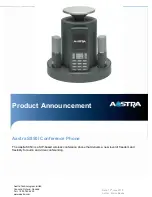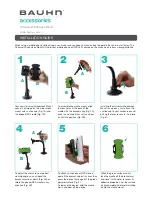
171
To make an emergency call:
1.
If the phone is not on, switch it on.
2.
Key in the emergency number for your present location (for example, 911 or other official emergency
number). Emergency numbers vary by location.
3.
Press the
key.
If certain features are in use (call barring, for example), you may first need to deactivate those features before you
can make an emergency call. Consult this document and your local cellular service provider.
When making an emergency call, remember to give all the necessary information as accurately as possible.
Remember that your phone may be the only means of communication at the scene of an accident; do not cut off the
call until given permission to do so.
Restricting Children's access to your Phone
Your phone is not a toy. Children should not be allowed to play with it because they could hurt themselves and
others, damage the phone or make calls that increase your phone bill.
FCC Notice and Cautions
FCC Notice
The phone may cause TV or radio interference if used in close proximity to receiving equipment. The FCC can
require you to stop using the phone if such interference cannot be eliminated.
Vehicles using liquefied petroleum gas (such as propane or butane) must comply with the National Fire Protection
Standard (NFPA-58). For a copy of this standard, contact the National Fire Protection Association, One Batterymarch
Park, Quincy, MA 02269, Attn: Publication Sales Division.
Cautions
Any changes or modifications to your phone not expressly approved in this document could void your warranty for
this equipment, and void your authority to operate this equipment. Only use approved batteries, antennas and
chargers. The use of any unauthorized accessories may be dangerous and void the phone warranty if said
accessories cause damage or a defect to the phone.
Although your phone is quite sturdy, it is a complex piece of equipment and can be broken. Avoid dropping, hitting,
bending or sitting on it.
T919 Roxy.book Page 171 Thursday, September 25, 2008 5:01 PM













































